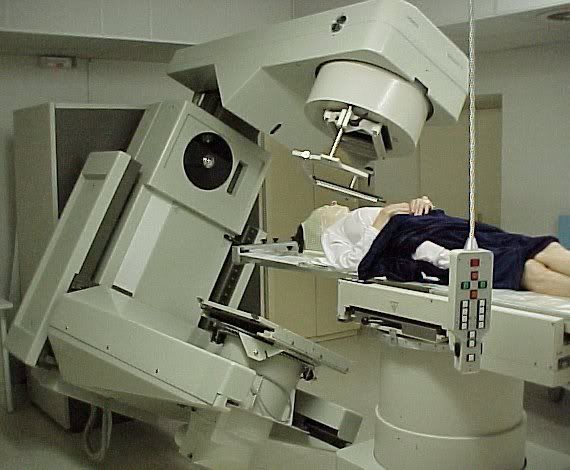Role of Continuing Supportive Cares in Increasing Social Support and Reducing Perceived Uncertainty Among Women With Newly Diagnosed Breast Cancer.
Breast cancer is a leading cause of cancer incidence for women in Taiwan, second only to cervical cancer. In 2001, 28,449 women in Taiwan were diagnosed as having cancer, and breast cancer was estimated to have affected 5,067 women. In addition, there were 1,241 deaths from breast cancer in 2001, and it was the fourth leading cause of cancer death. Although the incidence and prevalence of breast cancer has remained high, the 5-year survival rate increased from 64% in 1992 to 73% in 1998. Survivors of breast cancer have to deal with experiences of being newly diagnosed, the uncertainty of treatment, and possible recurrence. Therefore, breast cancer is a chronic disease that can engender negative emotional and interpersonal responses throughout the diagnostic, treatment, and posttreatment phases.
The high prevalence of psychosocial morbidity in breast cancer has been well documented in Western countries.3 Studies have found that providing information support is useful for lowering anxiety and distress and facilitating the process of coping with breast cancer. However, women with breast cancer frequently perceive the support offered as being inadequate or unhelpful.
In Taiwan, most hospitals have established their own standard teaching program for women with breast cancer. However, these teaching programs are performed by many nurses of different units, including those from the outpatient department, ward, and radio-oncology department. In many hospitals, including the 2 medical centers that we studied in Taiwan, the nurses routinely provide patients a lot of information at the same time but have not followed up their outcome or compliance after discharge. Some important information will be missed sometimes. Therefore, the weakness of these standard postoperative cares is the lack of a coordinator to organize these teaching contents, to assure that the subjects received all the teaching information and to follow up the outcome. This study is trying to establish a comprehensive continuous teaching program. With this program, a senior nurse will serve as a coordinator to organize all the important information and to provide the proper teaching time scheduler.
In this study, a senior nurse not only provides teaching and emotional support to both the subjects and their primary caregivers but also follows up the outcome step-by-step. Through this intervention, we hope that women with breast cancer with continuing support care can have more support and less uncertainty than do the women with the usual routine care.
Literature Review
Social Support
Social support may be defined as an interaction involving 2 or more people whose purpose is to promote awareness and education, provide emotional support, and assist with problem solving. It is found that social support may influence a patient's emotional and interpersonal adaptation to breast cancer diagnosis and treatment. Inadequate social support might contribute to poorer psychosocial adjustment among women with breast cancer. Perceived social support is also significantly associated with quality of life in women with breast cancer.
Providing informational support has been found to reduce psychological distress, such as anxiety and depression, and facilitate the process of coping with breast cancer. Northouse also suggested that although initial support is helpful, ongoing support is even more valuable. In the study of Thijs-Boer et al, however, only 6% of the hospitals provided optimal nursing care to newly diagnosed breast cancer patients. In addition, nursing care is mainly inadequate in the outpatient setting before and after surgery. Therefore, nurses need to provide continuing emotional and informative support to newly diagnosed breast cancer patients during admission and in the outpatient setting. In other aspects, the spouse and family are also important sources of support for women with breast cancer. However, family members themselves may have supportive needs because of psychological morbidity. Gates studied the outcomes of counseling for husbands and found that husbands were less distressed and more prepared to help their wives cope with the stress of a mastectomy. Nursing care should include family members to enable them to continue as effective caregivers.
Uncertainty
Survivors of breast cancer have to deal with the uncertainty of treatment and possible recurrence. Uncertainty is a cognitive state. It is the inability of individuals to determine the meaning of illness-related events that they cannot categorize or structure sufficiently because of lack of cues. Women with breast cancer often feel uncertain about the future. Mast found that illness uncertainty was positively related to distressing symptoms and fear of recurrence, even years after treatment. Research has also revealed that social support, credible healthcare providers, and event familiarity had the greatest influence on lowering the level of uncertainty. It is suggested that oncology nurses should provide nursing care to reduce patients' illness uncertainty to increase their levels of hope and decrease their threat and harm appraisal of events.
Discussion
The findings of this study support our 2 hypotheses. This indicates that continuing supportive caring intervention might improve social support and disease uncertainty among women newly diagnosed with breast cancer in Taiwan. The findings from this study are consistent with the work of previous researchers who have explored the effect of information support on social support and disease uncertainty. Corner suggested "cancer nursing as therapy" because nurses are trained to have many nursing-specific behaviors, such as listening, providing appropriate information, being available, being sensitive, caring, having empathy, being respectful, and being honest, which provide benefits to women with breast cancer. Nurses not only provide information to women with breast cancer, which increases certainty on the disease and treatment, but also help them discover appropriate meanings of their experiences, increase the power of their decision-making skills, and enable them to work through their experiences.
Although continuing supportive and caring intervention increased the overall social support and nurse/physician-provided social support in the experimental group, it still did not increase the family/friend-provided social support. Because the period when a diagnosis of breast cancer is received is distressing for both women and their spouses, ongoing research related to developing interventions for family education are necessary to help spouses cope with stress throughout the illness so that they may support their wives.
Social support was found to have an inverse association with perceived uncertainty. This suggests that higher levels of social support are associated with lower levels of perceived uncertainty. The better the social support, the less one has perceived uncertainty. This finding confirms the results of Mishel and Braden. They proposed that social support has the greatest influence upon lowering the level of uncertainty.
However, women with breast cancer frequently perceive the support offered as being inadequate or unhelpful. This emphasizes the need for research that focuses on how to help women with breast cancer cope better with their cancer. The continuing supportive and caring intervention, used in this study for women with breast cancer, emphasizes sharing ideas and opinions with health professionals, continuing through the critical phases of cancer, including treatment and posttreatment stages. The authors provided effective informational support to patients based on a one-on-one educational protocol, which might also improve patients' understanding of the process of their illness, treatment, and course of survivorship and thus reduce perceived uncertainty. This might explain why almost all women in the experimental group claimed that the CSC was very helpful. This finding lends support to what Ritz et al found in their study, which suggested that interventions that are shorter, more structured, and more focused in the first 6 months after diagnosis might be appropriate in helping women with breast cancer.
Conclusions
In light of the growing numbers of long-term breast cancer survivors, understanding the needs of these individuals is critical. Women newly diagnosed with breast cancer have multiple needs requiring continuing-care interventions. This study confirmed that a continuing-care intervention can gradually increase social support and decrease uncertainty during the first 3 months after a diagnosis of breast cancer for Taiwanese women. With knowledge of the role that continuing-care intervention plays in social support and disease uncertainty, nurses and other healthcare professionals can continue to explore and strengthen strategies to enhance the ability of Taiwanese women to cope with a diagnosis of breast cancer.




0 Comments:
Post a Comment
<< Home